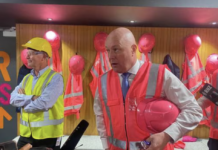Fears of a recession, rising interest rates and the increased cost of living alongside the inability to find skilled staff have the potential to see New Zealand’s employment landscape shift dramatically over the coming 12 months.
RCSA’s latest Jobs Report for the December quarter revealed the national job index has plummeted 22.4% in the past three months, signaling that business confidence and projected productivity may be in severe decline.
While demand for workers remained strong until August, it appears to have been falling ever since as advertisements for staff across all sectors plunged in the last quarter. Job postings are now 26.7% lower than one year ago.
“The report shows there is a particularly sharp contraction and shift in talent acquisition efforts across all industry sectors in NZ, says RCSA NZ Council Chair Jon Ives
“It’s highly possible that we could see unemployment begin to rise from the historically low rate of 3.3% we saw in September last year.”
All types of talent acquisition appear to be on the decline. Permanent job offerings plummeted 23.3% in the September quarter and postings for flexible work dropped 18.4% in the past three months.
The decline in postings is universal across all regions and job types but was particularly evident in management and professional roles and across the non-professional sector. All occupational groups in these categories reported double digit declines.
Postings for Technology Professionals fell 36.3% while opportunities in Public Administration were down a staggering 47% last quarter, as government departments tighten their belts in a bid to reduce the deficit.
- Roles in Accommodation and Food Services dropped 33.1%
- Postings for Sales Workers were down 29.7%
- Demand for Tradies and Technicians fell 21%
- Clerical and Administration worker roles declined 19.2%
- Professional Service job postings dipped 18.1%
There remains a significant national skills shortage and finding skilled labour is still a huge challenge, says Ives.
“The concern is that if the demand is still there but efforts to attract are declining this would seem to signal a shift in employer motivation where it is possible that some employers may have given up and withdrawn from trying to compete in the employment market, or potentially that previous efforts to attract staff are now being sidelined in favour of working to a perceived status quo (resignation to an inability to find suitable skills), which would then have a marked effect on general ongoing productivity and business confidence.
“Regardless of potential reasons, the report is appearing to indicate a sea change in employer intent and warrants further investigation.
“It will be interesting to see what the next twelve months look like and if business confidence bounces back or continues to fall.”




